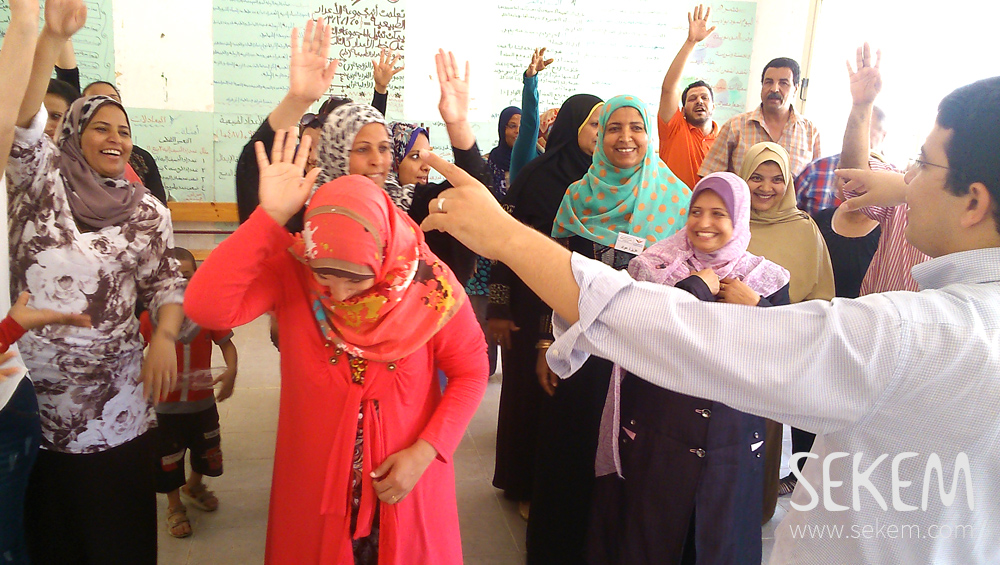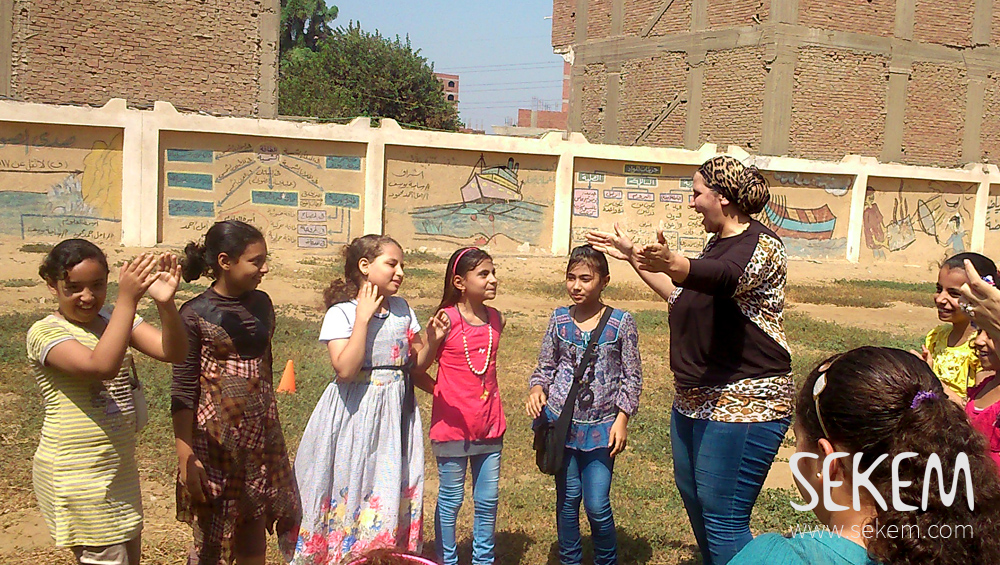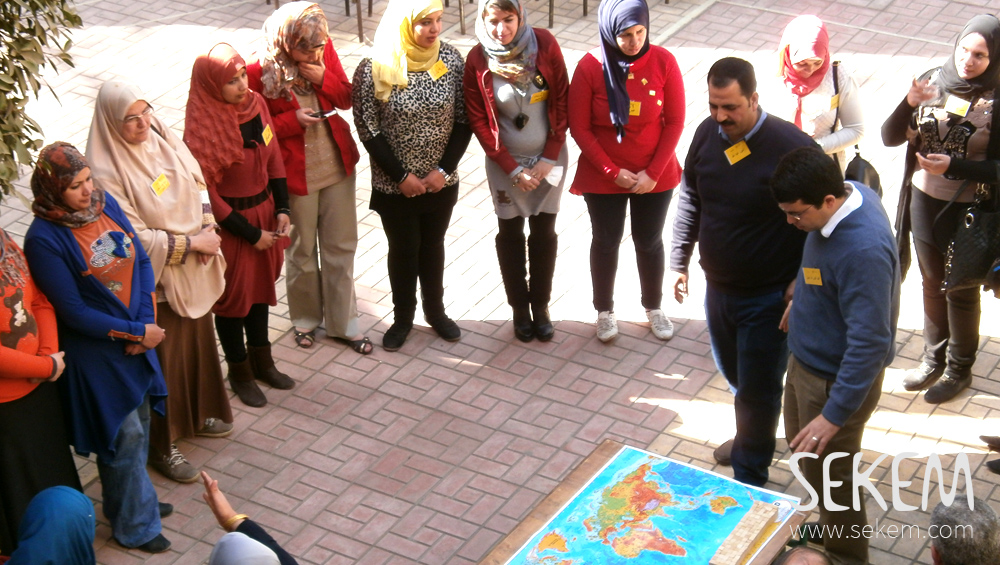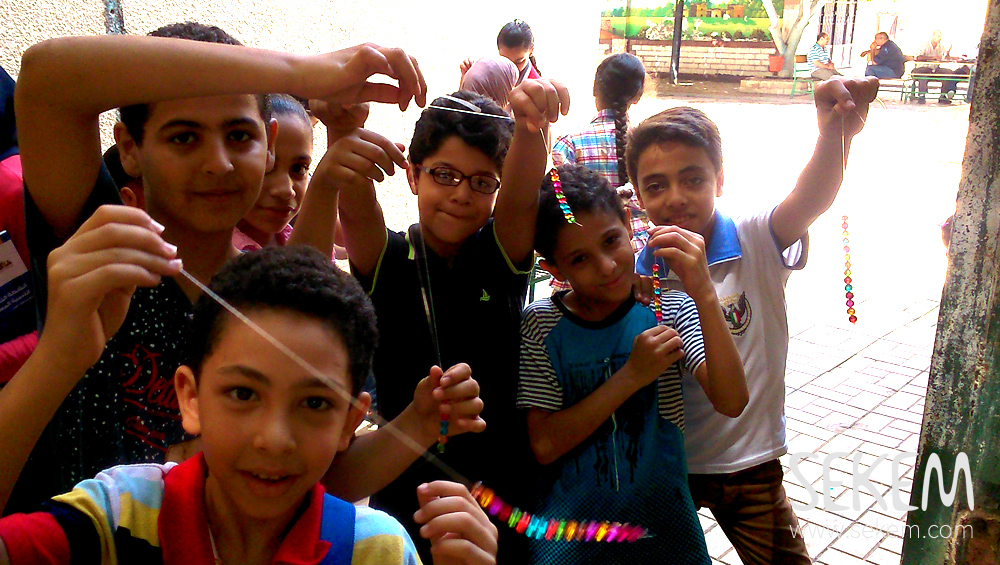In the last year the SEKEM Development Foundation initiated EduCamp II, a project that aimed to promote Education for Sustainable Development (ESD) in informal areas in Egypt.
„We are living in the age of sustainable development and our generation must understand its meaning and importance“, Hani Sewilam, the EduCamp Manager has been quoted in one of the ESD-Kits, which were used as comprehensive manuals for teachers in the context of EduCamp II. This education program is an extension of the first three-and-a-half-year EduCamp-project, which was the first initiative in Egypt to bring universities and schools together in a structured mechanism to introduce Education for Sustainable Development (ESD) in public schools nationwide within all levels of education. The RWTH Aachen University in Germany, together with the SEKEM Development Foundation, the Heliopolis University for Sustainable Development (HU) and other Egyptian partner universities and institutions, initiated the EduCamp program: Education for Sustainable Development beyond the campus, which was funded by the European Commission (TEMPUS program) in 2011.

Within the framework of this project, the different institutions created resource kits for schools to provide activities for teachers and students that link directly to the existing school curriculum and initiated a Development of a School Teachers’ Training Programme (STTP) to enable teachers to implement ESD and use the kits in their teaching activities. “During EduCamp II we developed the topics that have been already prepared during the first program”, Mohamed Anwar says. The SEKEM educator is one of the responsible managers from the SEKEM Development Foundation and the Heliopolis University who were main contributors in both EduCamp-programs. He was teaching at the SEKEM School for more than nine years and is now working in the Centre of Excellence for ESD (CoE) at the Heliopolis University under the leadership of Dr. Omar Ramzy, Associate Professor of Marketing. The establishment of this HU-department, by the way, is strongly connected to the EduCamp project as all involves were ask to build such centers of excellence for ESD.
Hand-On Activities for Children and Teachers
“The public Egyptian education system is not very well developed. Teachers are completely overloaded as they often have to handle more than 70 pupils per class”, Mohammed Anwar explains. “This is especially a problem in slum areas.” Therefore, EduCamp II is focusing its activities to El Warraq an informal area in Cairo. During summer, educational and recreational programs as well as hand-on activities have been organized. School teachers have been trained to build their capacity, using best practices from ESD teaching methodologies and existing educational and recreational facilities in public schools have been renovated. “All these activities have been very successful but were accompanied by a lot of obstacles in advance, as for instance bureaucracy”, Mohammed Anwar remembers. “But luckily, we were able to overcome them and even built good relations to ministries and administrations”, the experienced SEKEM co-worker continues. At the moment the Egyptian government is developing a strategy for sustainable development and the responsible ministries even ask the SEKEM Development Foundation for support, as it is well known that SEKEM has enormous experience in the field of holistic and sustainable education approaches.

The EduCamp II-Kits and -Trainings were mainly created by SEKEM and are focusing to five topics: water, energy, biodiversity, agriculture and general sustainable development concepts. For each topic the kits provide different activities with detailed information and step-by-step explanations for the teachers. “It is very important to not only provide teachers with the pedagogical tools to implement the activities effectively, but also with an understanding of the benefits of using such strategies in the classroom and an opportunity to discuss the new pedagogical approaches with colleagues”, Mohamed Anwar knows. Hence, also the children shall become actively engaged to the educational process, for instance by games, outdoor activities, group discussions and experiments.

Another project in this context was recently initiated by the HU-Center of Excellence in Hurghada. In the touristic town at the Red Sea many children are living in slum areas where they are spending most of the time with collecting rubbish. Mohamed Anwar: “We are aiming to reach the parent’s by teaching their children about sustainability and health.” Accordingly, the CoE initiated two trainings with teachers in regards to ESD and received very positive feedback by the Ministry of the Red Sea. Further trainings are already planned.
Christine Arlt
Children University at Heliopolis University for Sustainable Development
Center of Excellence at Heliopolis University for Sustainable Development

